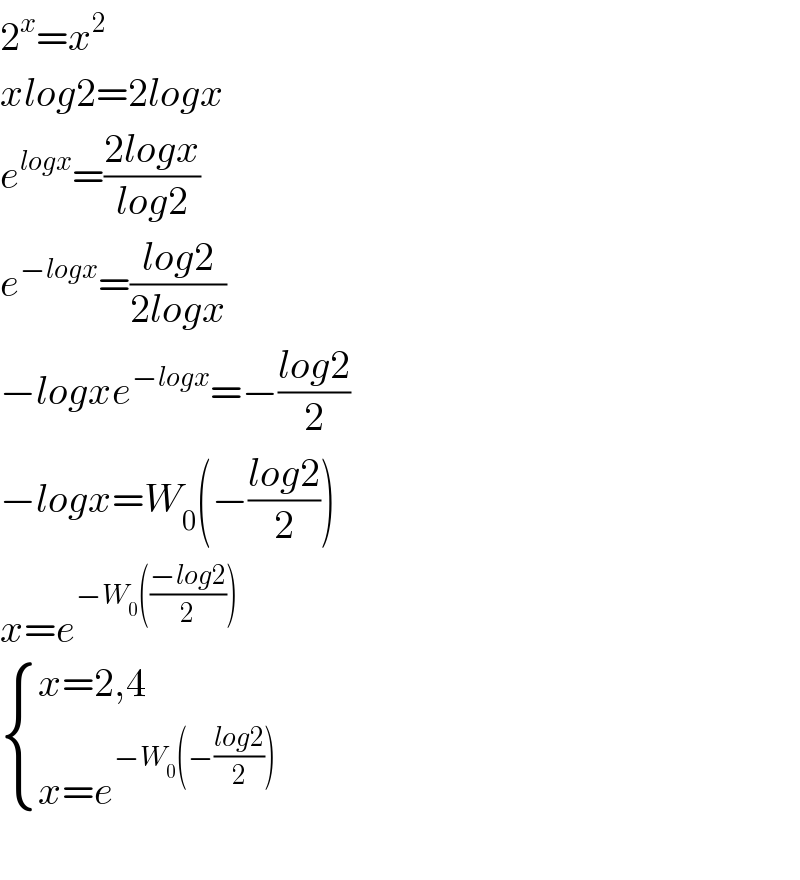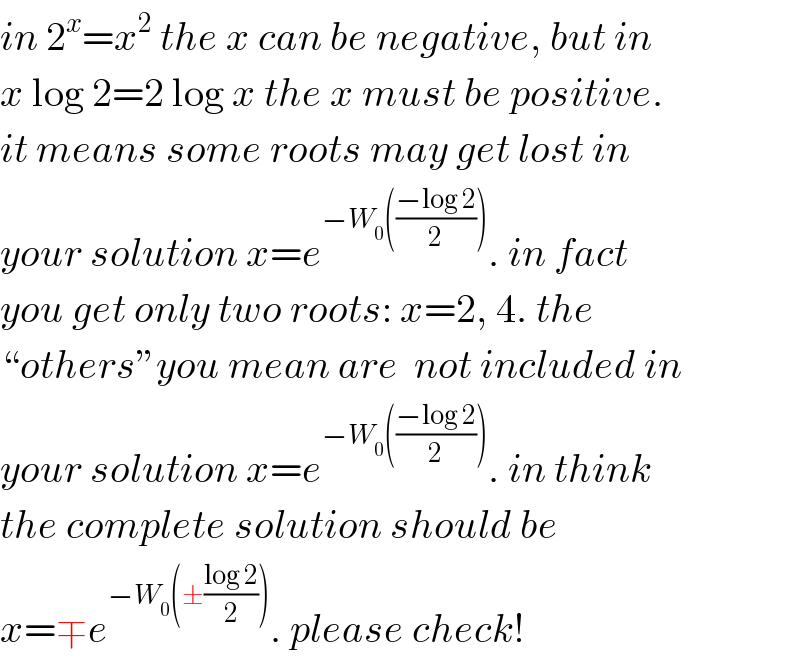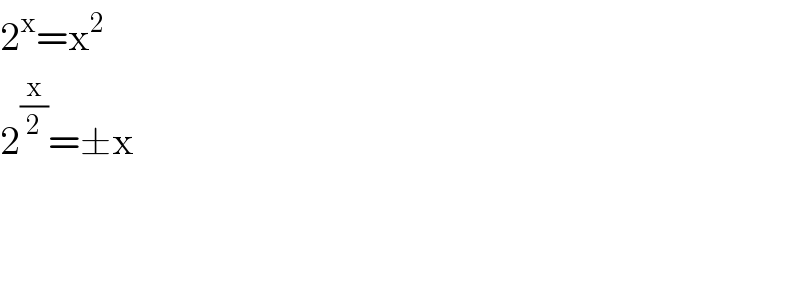
Question and Answers Forum
Question Number 109336 by Rasikh last updated on 22/Aug/20

Commented by Ari last updated on 22/Aug/20
x=2
Commented by Ari last updated on 22/Aug/20
x=4
Commented by mr W last updated on 22/Aug/20

Answered by Dwaipayan Shikari last updated on 22/Aug/20

Commented by mr W last updated on 22/Aug/20

Commented by Dwaipayan Shikari last updated on 22/Aug/20

Commented by mr W last updated on 22/Aug/20

Commented by Rasikh last updated on 22/Aug/20

Commented by Rasikh last updated on 22/Aug/20

